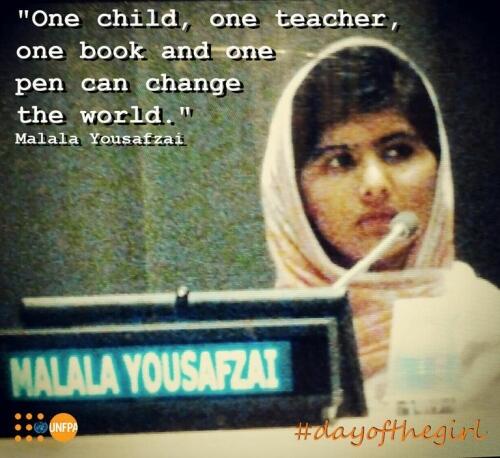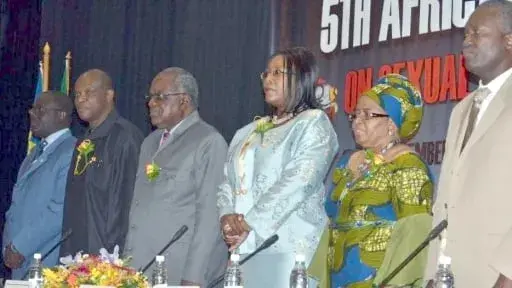Dr. Babatunde Osotimehin
More girls are in school today than ever before. However, too many girls, especially the most marginalized, have never seen the inside of a classroom, or they go to school only sporadically, never getting the opportunity to acquire the skills they need to reach their full potential. For those in school, challenges like teacher shortages abound, making learning difficult even for the most motivated student.
While the gender gap in primary school enrolment has narrowed, girls are still more likely to be out of school than boys among primary- and lower-secondary-age groups. Girls are also less likely to complete primary and enrol in secondary schools, and have lower literacy rates than boys.
Yet, we know that the benefits of girls’ education, especially secondary education, are far-reaching: delayed marriage and childbirth, fewer maternal and infant deaths, lower fertility rates, lower risk of HIV infection, and increased economic and political participation.
“Innovating for girls’ education”, the theme of this year’s International Day of the Girl Child, which we celebrate today, focuses on new approaches to realizing these benefits.
UNFPA, the United Nations Population Fund, is innovating for girls. New school curricula, including for age-appropriate comprehensive sexuality education, are helping transform gender norms and enabling girls to fulfil their human rights, including their basic rights to education and health. Through sexuality education, girls and boys are being equipped with the critical thinking and decision-making skills they need as they come of age, start relationships, and prepare for the future.
A year ago today, UNFPA launched its Adolescent Girls Initiative to deliver more systematic and integrated programmes at scale in support of married and unmarried girls aged 10-19 years, who are at risk of school dropout, child marriage, and adolescent pregnancy.
This initiative is building girl-centred programmes that provide safe spaces to girls in a number of countries, including Ethiopia, Guatemala, India, Mozambique, Niger, Sierra Leone and Zambia. These programmes help girls stay in school, delay marriage and pregnancy, engage actively in their communities, gain friends and social support, and access information and services, including sexual and reproductive health services.
Girls’ education must be part of a comprehensive approach that includes health, economic and political empowerment, and protection from violence.
Investing in girls and enabling them to exercise their right to make informed choices about their health, their bodies and their future is one of the surest ways to transform individual lives, strengthen families and communities, and ensure equitable, sustainable development for all.
If a girl is educated, healthy, safe and skilled, she will invest in herself and her present and future family, charting a new course for our common future.
Tomorrow is today aged 10, and it’s a girl. Change her life, change the world.




